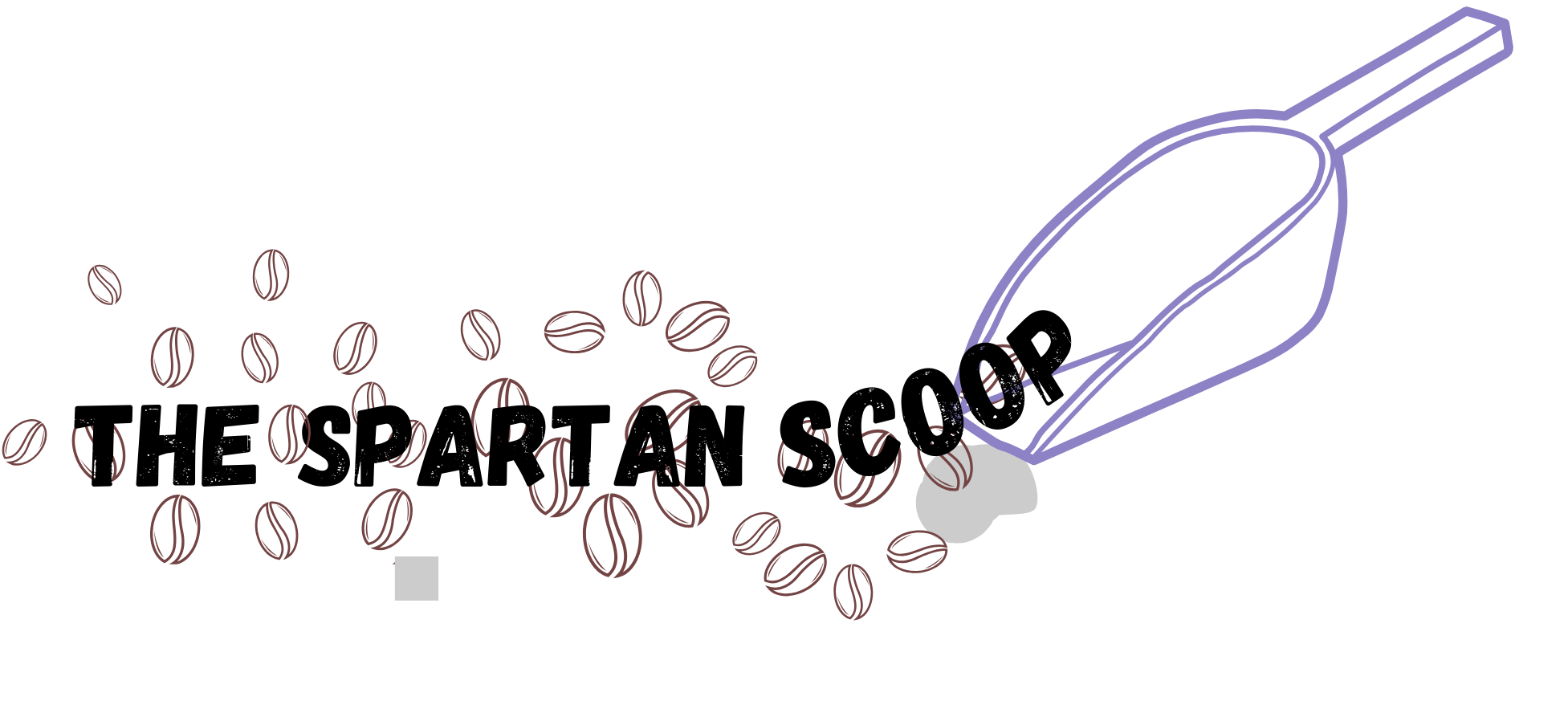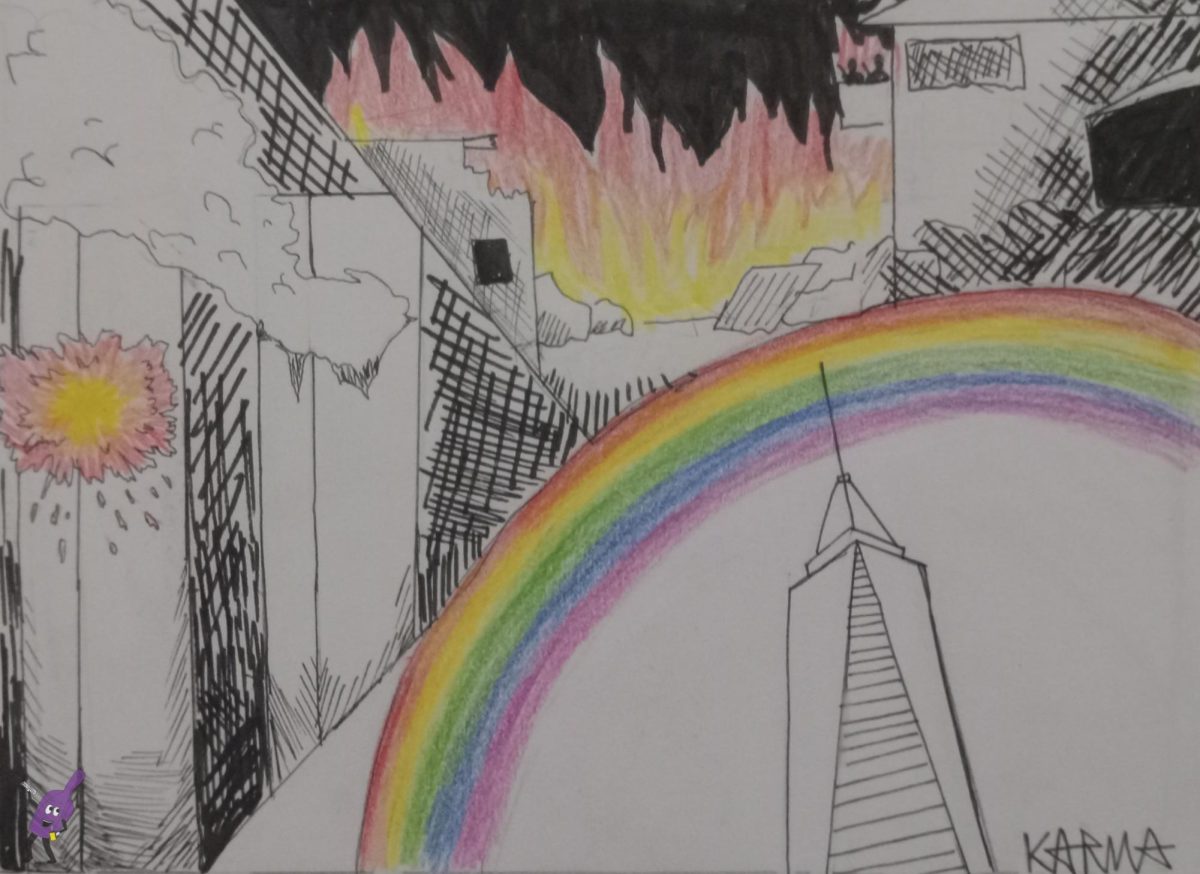“Where were you during 9/11?”: the question that has shaped a generation. A question that doesn’t apply to the current youth. Despite the disconnection from the terrorist attack that those born after 2001 may feel, the impact has left a permanent mark on American society and international relations.
On September 11, 2001, the terrorist organization al-Qeada launched an attack against the United States. Four hijacked planes crashed killing nearly 3,000. American Airlines Flight 11 and United Airlines Flight 175 struck the Twin Towers at the World Trade Center, American Airlines Flight 77 at the Pentagon, and United Airlines Flight 93 crashed into a field outside of Shanksville, Pennsylvania.
United Airlines Flight 93 was believed to be bound for the US Capitol building in Washington DC, however, passengers aboard the plane worked to overpower the hijackers, crashing into the empty Shanksville field. The actions of these brave crew members saved an unknown number of lives, and the sacrifice they made can be honored at the Flight 93 National Memorial in Pennsylvania.
Regular news broadcasts were interrupted by the shocking events. The attack was covered by live press as it unfolded, sending terror through the hearts of Americans as they realized the nation was under attack.
Families mourned the loss of loved ones, many first responders lost their lives rescuing survivors of the attack, and President George W. Bush along with NATO plotted to win this new War on Terror.
At the time of the attack, Bush was reading children’s stories at a Florida School. With the news of the second plane, Bush addressed the nation from the school gymnasium. In his address, he spoke of how “Today, our nation saw evil, the very worst of human nature. And we responded with the best of America — with the daring of our rescue workers, with the caring for strangers and neighbors who came to give blood and help in any way they could.” There was a call for American Strength and nationalism to hold us together during this unprecedented time.
Today, our nation saw evil, the very worst of human nature. And we responded with the best of America — with the daring of our rescue workers, with the caring for strangers and neighbors who came to give blood and help in any way they could.
— President George W. Bush
The Global War on Terrorism and the War in Afghanistan was the longest-lasting war in American history, from 2001 to 2021. In the aftermath of the September 11th attack, NATO countries came to the aid of the US. On October 7, 2001, the US and Britain launched Operation Enduring Freedom with a bombing campaign against the Taliban and al-Qaeda in Afghanistan.
The founder of the violent extremist organization al-Qaeda, Osama bin Laden, began organizing terrorist attacks in countries including the United States as early as the 1990s. He was wanted by the FBI for two years before the attack on September 11. After many failed assassination attempts, bin Laden went into hiding, and was placed under a $25-million bounty by President Bush. Bin Laden wasn’t located until May of 2011, in a compound in Pakistan. On May 11, 2011, bin Laden was killed by US forces directed by President Barack Obama.
Casualties expanded beyond actions by al Qaeda. In Afghanistan, actions by the US and allied forces have been labeled as war crimes by Human Rights Watch. Alliances formed with Afghani leaders often ended in further violence due to misinformation. Gul Agha Sherzai, one allied leader, was found to be overseeing war crimes, and accused of corruption. Airstrikes targeting military personnel had more destructive effects than anticipated. Civilian deaths from US military airstrikes in Afghanistan alone were over 46,319.
Iraq was roped into the War Against Terror with Bush’s unproven claims of Iraq’s ties to al-Qaeda and their alleged weapons of mass destruction. This launched an invasion of the country that resulted in the destabilization of the Iraqi government and countless civilian casualties.
In the US losses were high, and additionally to the nearly 3,000 lives lost in the attack itself, injuries and trauma affected an estimated 400,000. Long-term respiratory illness resulted from the toxic gasses emitted after the attack, and over 5,700 died from respiratory diseases including black lung. Cancer linked to the attack has affected over 5,400.
The attack also left thousands with severe mental health problems. PTSD, depression, and substance use disorders can be attributed to the attack. Deaths by suicide and accidental overdose are additional long-term outcomes of the attack still affecting those harmed.
Many first responders directly exposed to hazards found themselves with permanent respiratory illness, physical disabilities, and extreme mental health concerns. Many are unable to work, and despite disability programs and government initiatives to help those affected by 9/11, struggle to get by. Many struggle to qualify for programs, missing deadlines, or not meeting all qualifications.
Within the US, policy shifted rapidly. The United States was ill-equipped to handle such large security threats, so the U.S. government began to create protection measures against further attacks. The Department of Homeland Security was founded, and under it the Transportation Security Administration (TSA).
Not only has American security changed, but culture as well. The feeling of security Americans once held was diminished, and the States entered an era of fear. Islamophobia post-9/11 became widespread. Muslim Americans report high levels of racial profiling today, as anti-Islam organizations continue to rise.
ACT! for America was founded in 2007 in response to 9/11. The intent was to spread the word of the “dangers” of Islam, and defeat terrorism. Founder, Bridgette Gabriel, claimed during a 2007 conference that a “practicing Muslim, who believes in the teachings of the Koran, cannot be a loyal citizen of the United States.” The organization, and others like it carry the message that Islam as a religion is directly related to terrorism.
Externally from anti-Muslim groups, the general public carries bias from a post-9/11 culture. The weariness of Muslims, and perceived Arabs grew after 9/11. A qualitative study from the University of Indianapolis shows over half of law enforcement officers in 2015 feel that Muslims are more dangerous than Christians, and feel anxiety and increased vigilance in interactions.
The impacts of 9/11 reach far beyond the initial destruction of the attack. Long-term health effects on Americans remain, and the war in Afghanistan left civilians dead and lives destroyed. The lives of Muslim Americans are filled with obstacles to pass. Policy changes permanently altered the American way of life as American culture shifted to one of fear.




